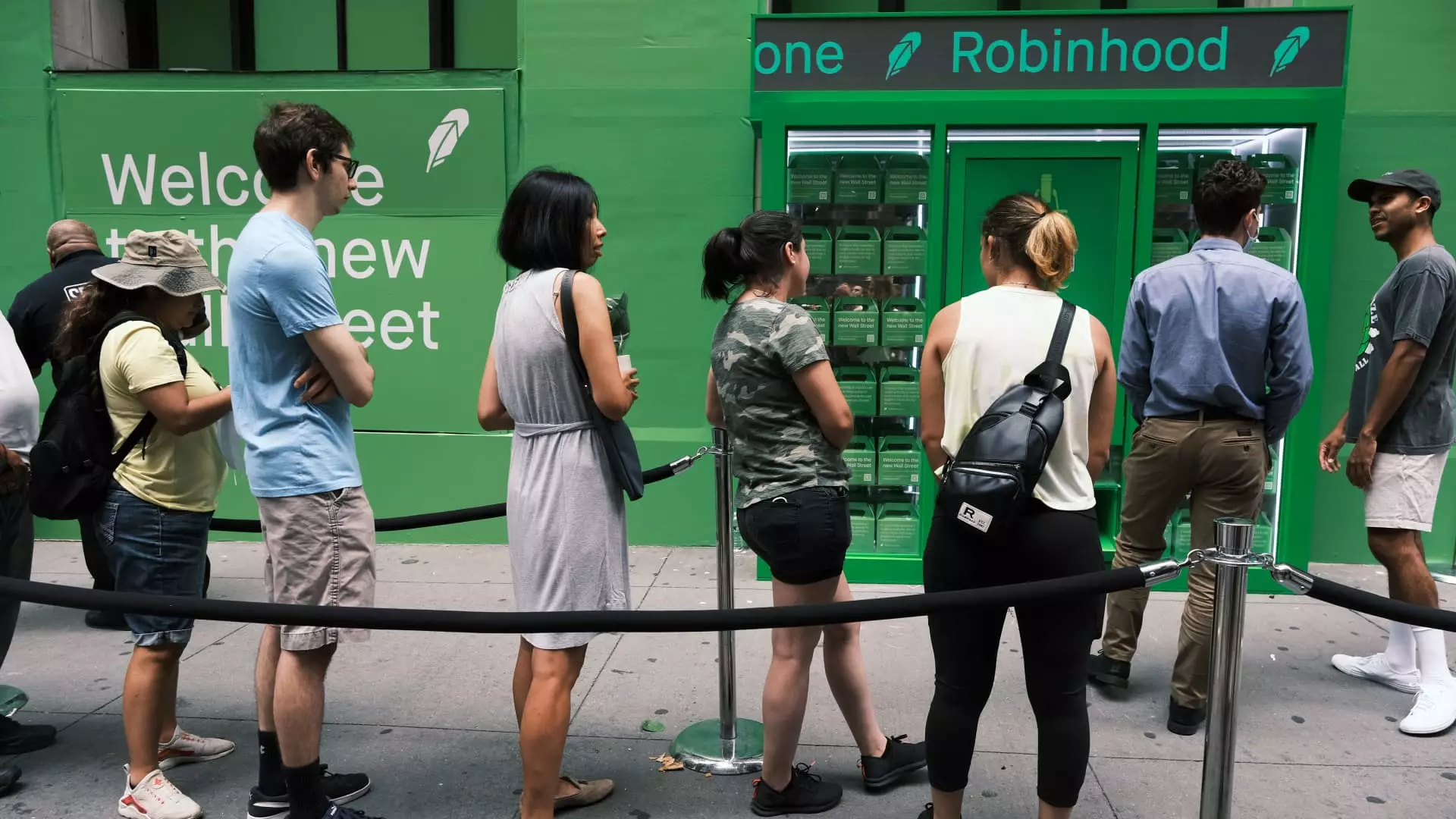The recent plunge in tech stocks, particularly in the fintech sector, has been nothing short of alarming. As the Nasdaq faced its most significant drop since 2022, the pain was most acutely felt by companies straddling the line between Wall Street and Silicon Valley. Robinhood’s staggering 20% fall, along with Strategy’s 17% dip and Coinbase’s 18% loss, clearly illustrate the turmoil gripping the market. The real tragedy here isn’t merely the percentage drops but what they represent: a massive loss of investor confidence and a stumbling belief in the innovation these companies promised.
Bitcoin’s Decline and Its Ripple Effects
At the heart of this sell-off lies the crumbling price of bitcoin, which has shed nearly 19% over the past month alone. Once heralded as a revolutionary asset, the cryptocurrency’s current downward spiral signifies far more than just fluctuation; it indicates a pervasive crisis in trust. This grotesque dance of volatility is not merely about numbers declining on a trading screen. It brings to light a fundamental question: Has the cryptocurrency market matured, or are we witnessing a series of unfortunate flashbacks from the past?
Consumer Confidence is Shaky Ground
Further highlighting the fragility of the situation is the evident decline in consumer confidence. The Conference Board’s recent report showing a significant dip to 98.3 signifies not simply a slump, but a potential consumer behavior shift that could haunt the fintech landscape for the foreseeable future. JPMorgan’s analysts pointed out that this emotional ebb could endanger fintech companies directly linked to consumer spending — and they are absolutely right. The readjustment away from discretionary purchases, as suggested by Walmart, hints at a larger economic issue lurking beneath the surface.
The Implications for Fintech Innovators
The heartbreaking reality for fintech innovators is that they may have overstretched themselves during the high-flying days of the fourth quarter, fueled by hopes for regulatory ease under the leadership of the Trump administration. With this prior optimism shattered by current trends, these companies are left grappling for survival. Companies like Affirm and SoFi, while groundbreaking with their buy-now-pay-later frameworks, now seem as fragile as the trust underpinning their financial models.
Balancing Optimism with Caution
The perplexing juxtaposition of past exuberance with current dismay calls for a rigorous reevaluation of the fintech landscape. Stakeholders need to confront the brutal truth: the era of unchecked growth may have led us to a precipice. Future innovations in fintech must be anchored in realism, backed by genuine consumer needs rather than speculative euphoria. Investors seeking recovery must also share a balanced attitude towards ambition and the stark realities of consumer sentiment.
This moment in fintech serves as a grim reminder of the foundation upon which innovation must be built—perceptive understanding of consumer behavior and economic climates. As the storm clouds gather, the industry’s resilience will be tested like never before, challenging all to navigate this tempest with both grit and wisdom.

